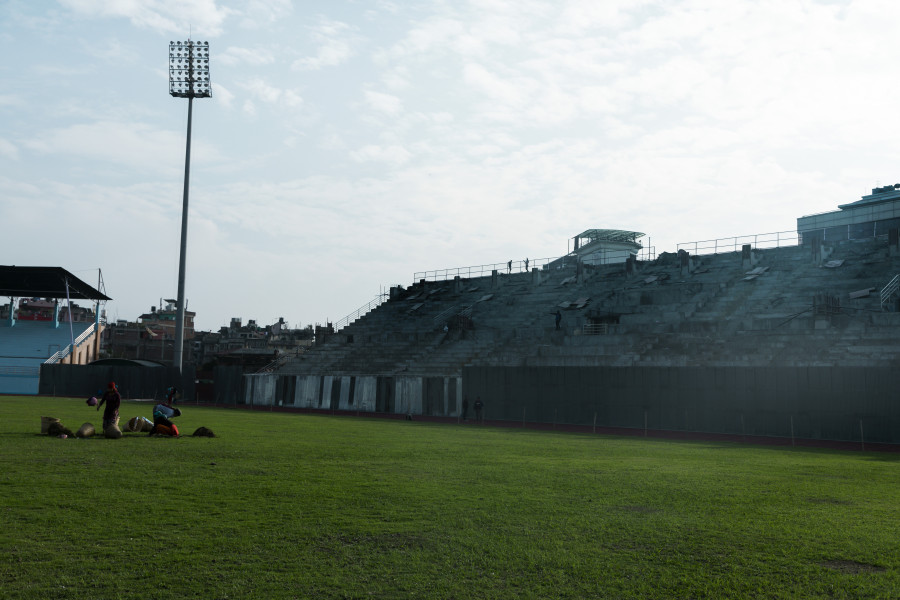Editorial
Nepali sports authorities are setting records in mismanagement
Hope remains that Nepal can somehow manage to host the South Asian Games successfully.
Nepal’s lack of concrete growth in athletics and sports has everything to do with mismanagement. And such problems always seem to stem right from the top. What else could explain the complete apathy of the authorities concerned when it comes to sports promotion? This year marked the eighth edition of the National Games in Nepal. But had the National Sports Council been competent, it would have been the 19th edition since the tournament was originally planned to be a biennial event in the 1980s.
Similarly, authorities have failed to host the 13th edition of the South Asian Games, originally supposed to be held in March 2018. Nepal kept postponing the event due to lack of infrastructure, since the national stadium had been left in disrepair since the 2015 earthquake. And while the organisers have promised that Dashrath Rangasala will be ready in time for the opening ceremony on December 1, the fact that they are yet to finish the roof of the VIP stand—after having all this time to finish the stadium—puts the entire schedule in doubt. But what is even more disturbing than the incomplete stadium is the news that there is no equipment for at least eight events to be featured in the South Asian Games—16 days to the opening ceremony. It seems that Nepal is hell-bent on embarrassing itself in front of its South Asian peers.
It was not always like this for sports and athletics in Nepal. In fact, the country had successfully held the first edition of what was then called the South Asian Federation Games. It also held the eighth edition in 1999 to great success. That Nepal could not hold this 13th edition on time has already been an embarrassment. South Asian countries do not have a strong athletic background, to begin with. Besides a few sports, like cricket, shooting or martial arts, South Asia has not been fortunate enough to put a stamp on athletics. The results have a lot to do with the historically low investment in sports and games in the region. In the Olympic Games, the total medal tally for the entire region falls below 50, the bulk of these medals won by India (28). In fact, four countries—Bangladesh, Bhutan, Maldives and Nepal—have not stood on the podium at the Olympics even once. This makes the South Asian Games vital: envisioned as a biennial congregation of peers competing against each other, hoping to use the Games as a springboard to achieve better results internationally.
Now, even as officials from the National Sports Council promise that the stadium will be ready in two weeks—just in time for the regional event—the problems of procuring the necessary equipment to actually host the Games has cropped up. How can Nepal face its neighbours if it does not even have the capacity to hold eight of the games already listed in the event? It is worrying to think that the authorities concerned have allowed for such a necessary part of the games to be procured this late. Apparently, due to a lack of time, the concerned have sanctioned a Rs430 million budget to purchase the equipment from neighbouring countries, bypassing regular procurement processes and opting for expensive but fast transport methods, such as air freight. The games have to be held beginning on December 1, the South Asian Olympic Council this past Sunday confirmed this fact. Now, hope remains that Nepal can somehow manage to host the games successfully. However, a thorough investigation needs to occur to find out how exactly the authorities managed to leave out such important tasks until the last moment.
***
What do you think?
Dear reader, we’d like to hear from you. We regularly publish letters to the editor on contemporary issues or direct responses to something the Post has recently published. Please send your letters to [email protected] with "Letter to the Editor" in the subject line. Please include your name, location, and a contact address so one of our editors can reach out to you.




 12.32°C Kathmandu
12.32°C Kathmandu














